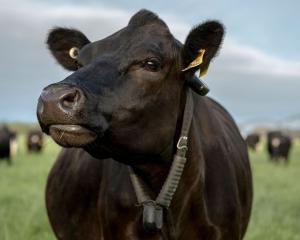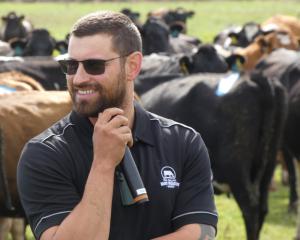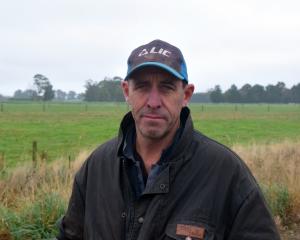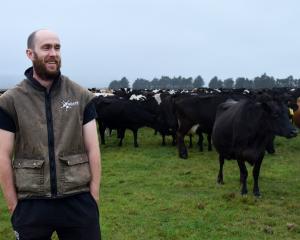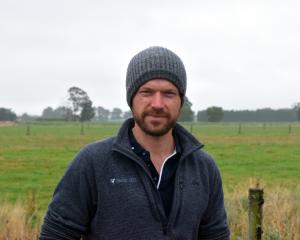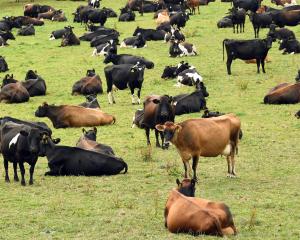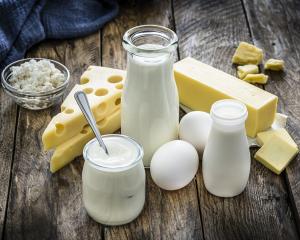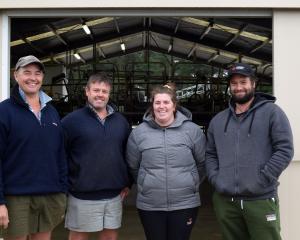
The low-lying herb has a high tolerance to summer heat, and is being sown for environmental reasons.
Research has found the nitrate concentration in the urine of cows grazing plantain is much lower than those grazing perennial ryegrass and white clover pastures.
The goal is to drop nitrogen leaching without disturbing farm profits and performance.
Computer modelling suggests cow intakes of 30% plantain or higher will cut nitrogen leaching from 35kg to 26kg of nitrogen per hectare.
LUDF’s team has tried in the past to introduce pasture mixes with plantain, but it was being out-muscled by ryegrass.
Now there are two paddocks planted in the herb — initially with clover — of the farm’s 21 paddocks.
Manager Peter Hancox said one of the problems was that the herd was eating the grass mix more quickly than the plantain and it wasn’t getting the chance to mature, so they were leaving the plantain paddocks a minimum of 25 days before grazing to let them mature more under a longer round.
"We are looking to offer the cows about a third of their diet on plantain a day using it a bit like a crop with on-and-off grazing. We were hoping to get three paddocks in plantain this year and have managed to get in two and we are looking to do 10 to 15% each year."
He said there was good science to show it worked.
"It won’t produce any less [milk] so it doesn’t affect milk production and it has the environmental benefits. It lowers the nitrate in the cows’ urine."
Mr Hancox said the current thinking was that it would become a three-year crop before it needed replacing.
Establishment costs were high from weed spraying — particularly to prevent docks seeding — and the team had been keeping on top of grass grubs.



